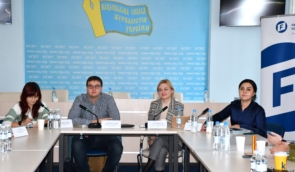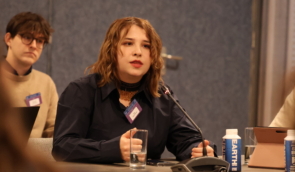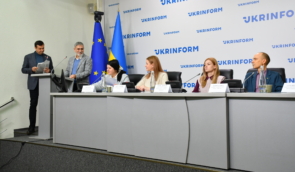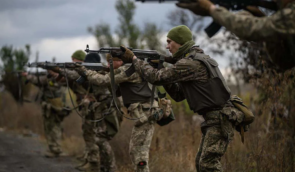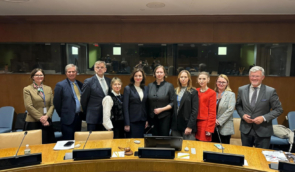ZMINA shared stories of resistance at the “Global Civil Defense Leaders Forum” in Taiwan
The “Global Civil Defense Leaders Forum: The Ukraine-Russia War, Regional Security and Impact on Taiwan” was hosted by the Civil Defense Education Association “Kuma Academy” in Taiwan’s capital, Taipei, in May. ZMINA’s International Advocacy Manager, Tetiana Zhukova attended the conference to share stories of Ukrainian civil society’s resistance.
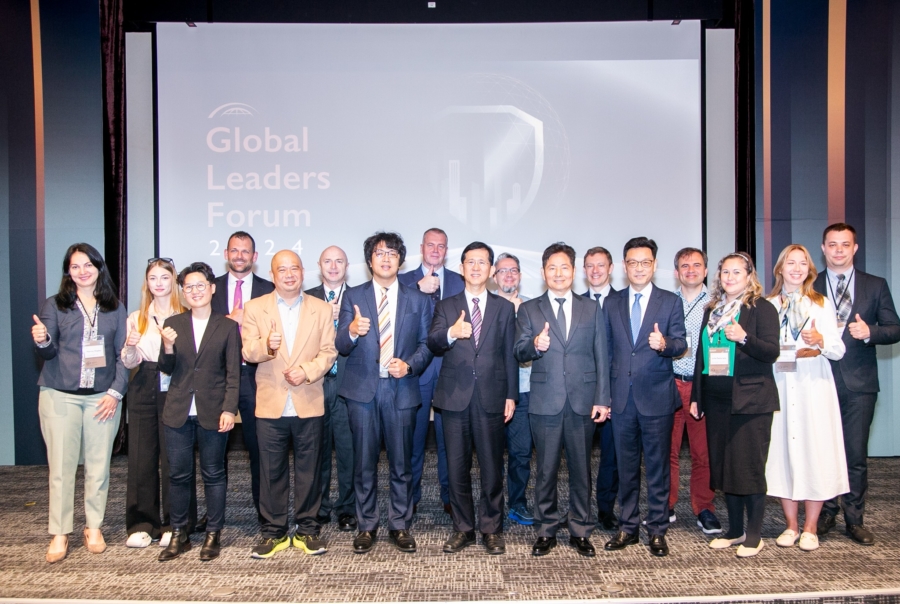
The opening ceremony was joined by the Minister of Digital Affairs, the Deputy Director of the Police Service of the Ministry of the Interior and the DPP Legislator, as well as activists and researchers from Ukraine, the US, Poland, the Czech Republic, and Estonia.
“We want to bring a clear voice to Taiwan from all over the world, that is, ‘Civil defense is resilience, resilience is strength, and strength is security.’ We hope that through the valuable experience of various countries, we can find countermeasures and policies suitable for Taiwan to respond to emergency crises,” said the Legislator Puma Shen.
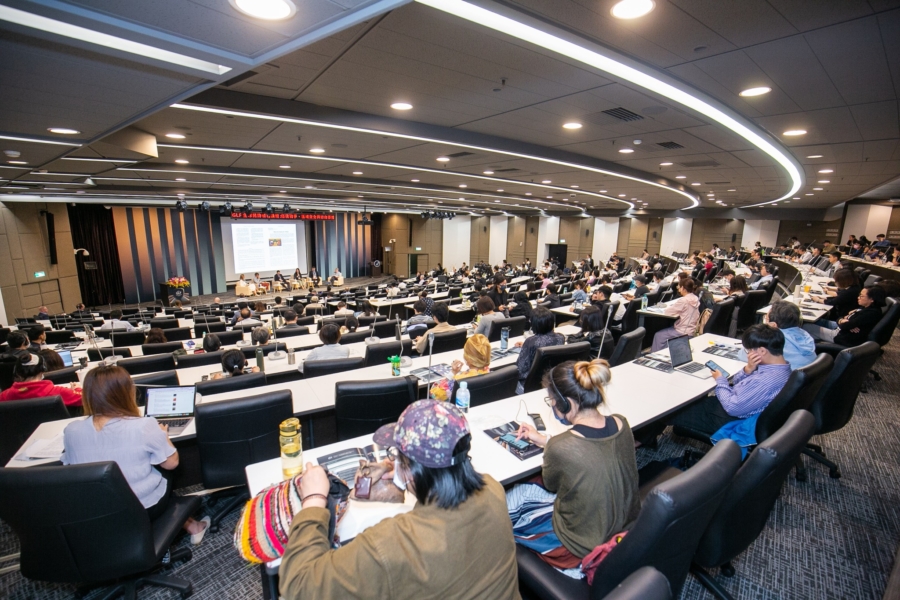
The forum began with a discussion about “10 Years on: Russo-Ukrainian War” to deepen the global understanding of the background and development of Russia’s aggression against Ukraine, thereby enhancing the Taiwanese people’s emphasis on national security. Filip Noubel, the Czech Managing Editor of Global Voices, hosted this topic. The panelists included Tetiana Zhukova, ZMINA’s International Advocacy Manager, Dmytro Burtsev, a postdoctoral researcher at the School of International Affairs at National Chengchi University, Hanna Hopko, Co-Founder of the International Center for Ukrainian Victory, Yurii Poita, Head of the Asia-Pacific section at Center for Army, Conversion and Disarmament Studies, and Maksym Tereshchenko, CEO of the Mantis Analytics.
Panelists discussed and analyzed the geopolitical impact of Russia’s war of aggression on Europe and the world, civil society’s response, international community reaction, possible solutions and influence on Taiwan.
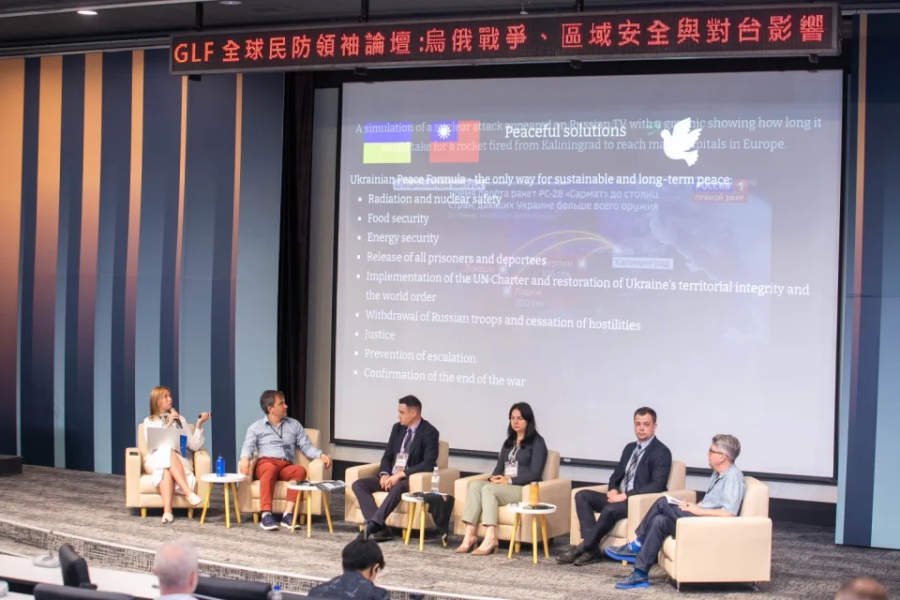
“There is around 8000km distance between Kyiv and Taipei, but we have many similarities. In different parts of the world but around the same time, Ukraine and Taiwan rose in revolutions. The sunflower movement occurred in 2014 in Taiwan, and the Euromaidan Revolution occurred in late 2013-early 2014 in Ukraine.” Zhukova explained the events of the Ukrainian Revolution of Dignity through the prism of the newly created Human Rights Centre ZMINA.
Then, ZMINA played a significant role in monitoring the situation on the ground, documenting cases of police brutality, and providing legal assistance to protesters and activists. The democratic aspiration of the people won but Russia did not want to accept the loss of control over Ukraine, so its aggression began through the occupation of Crimea and launching an invasion of the eastern regions of Ukraine.
“Civil society movements and initiatives, opposing the Russian invasion, started appearing in the occupied territories. However, peaceful civil society initiatives were shot down, their activists were sentenced to imprisonment, participants of the pro-Ukrainian campaigns were beaten, licenses of independent media were taken away, residents of the occupied territories were detained in the disinformation bubble of Russian propaganda where the sprouts of resistance were eradicated or forced into exile.”
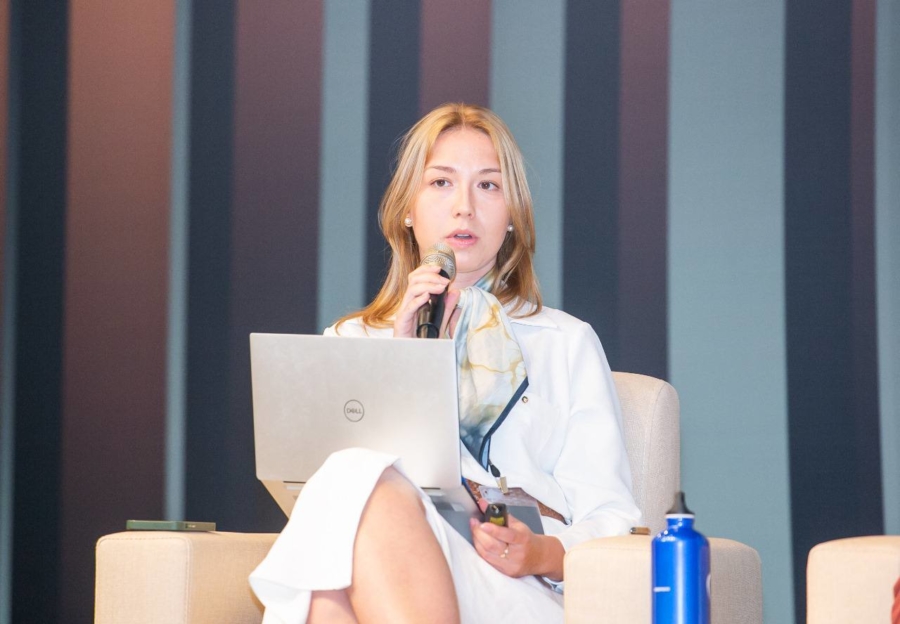
Zhukova spoke about the persecution in the occupied territories and Crimean political prisoners, in particular, Social Media Manager Leniie Umerova, who was allegedly accused of “espionage”; Civic Journalist Iryna Danylovych who lost her hearing in detention; Journalist Amet Suleymanov who has serious heart disease and needs heart valve replacement surgery; political prisoners Dzhemil Hafarov and Kostiantyn Shyring who died on Russian detention. She also mentioned civilian detainees from the “newly occupied territories” who suffer from methodological persecution, abductions and torture; as well as POWs, such as the Co-Founder of ZMINA, Maksym Butkevych.
“Such violations cannot go unpunished: the persons responsible for committing these crimes must be held accountable – from the highest echelons to the soldiers executing the orders; abducted, unlawfully detained and deported people must be returned; survivors must receive compensation, in particular at the expense of the Russian frozen international assets,” highlighted Tetiana. She added that other authoritarian regimes, such as China, are closely watching the outcomes of Russia’s aggression against Ukraine. “If we want to live in a world where countries are not threatened by armed aggression from their neighbors, we must work together to protect the global order and support each other.”
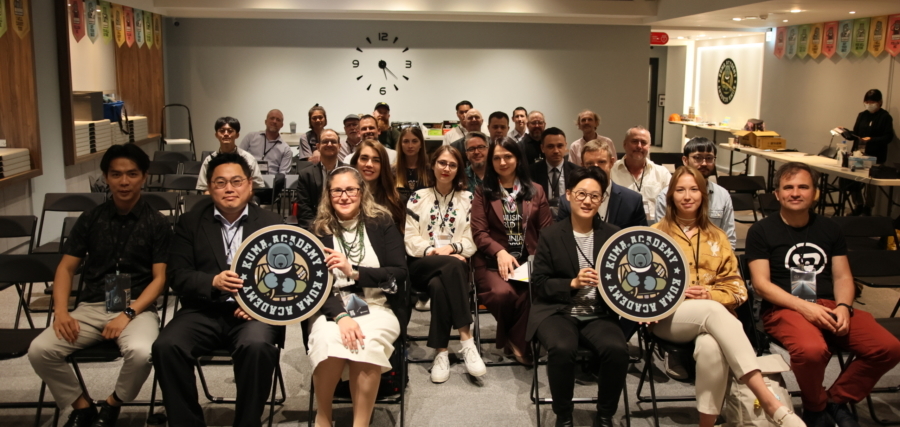
The other panel discussions included such topics as countering disinformation; technology and new forms of modern warfare; China’s influence and Taiwan’s response; and fostering civil-military cooperation in Taiwan.
The conference was hosted in the background of the protests that shook Taiwan because of the Taiwanese Parliament’s decision that make Taiwan more dependent on China. Ukrainian experts said that the Ukrainian Parliament faced a similar situation in the past, with pro-Russian parties increasing Russia’s influence in Ukraine. “Although Taiwan has not entered a physical war yet, you are already on the verge of a hybrid war. Ukraine made this mistake in the past, allowing pro-Russians to infiltrate the government and parliament. Taiwan should recognize the threat and act decisively against Chinese influence,” called Mariia Makarovych, East Asian Office Representative of the Liberal Democratic League of Ukraine.
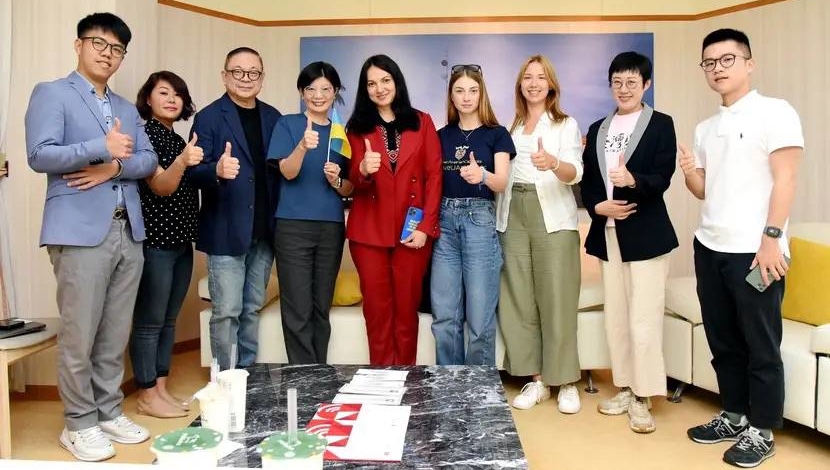
During the press conference, Ukrainian experts called Taiwanese colleagues to prepare for hybrid warfare, tackle disinformation and Chinese influence in politics, become more independent economically, and put more emphasis on crisis education. The Head of the Charity Foundation “Heart in Action” Kateryna Muzlova said: “Ukraine requires students to learn how to provide first aid, in particular, to put bandages and stop bleeding. I had not thought it was important during my school years. After the war broke out, the training memories came back.” Taiwanese people should also have disaster preparedness education and the ability to resist future threats.
Participants of the advocacy visit to Taiwan had a range of other workshops and meetings in the Ministries of Interior and Digital Affairs, as well as Taiwanese media.
If you have found a spelling error, please, notify us by selecting that text and pressing Ctrl+Enter.

